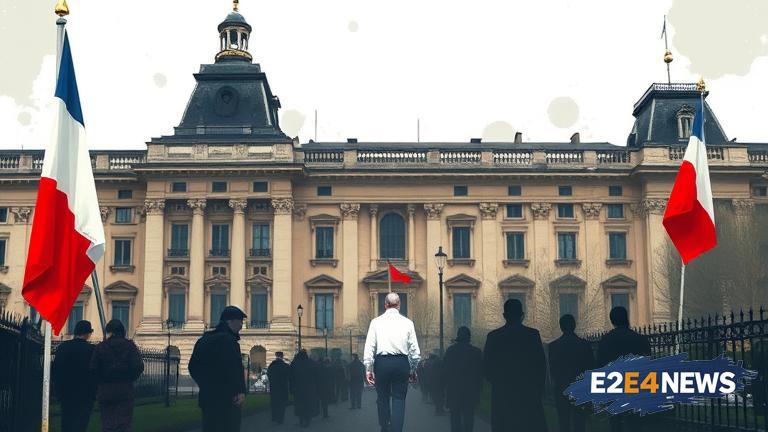France, a country known for its rich history and strong stance on freedom of expression, is soon to embark on a journey of internet censorship. The French government has proposed a new law that aims to regulate online content, sparking widespread concern among citizens, activists, and experts. The law, which is set to come into effect soon, will give the government the power to block websites and remove online content that is deemed to be a threat to public order or national security. This move has been met with criticism from many, who argue that it is a threat to online freedom and democracy. The law will also require social media platforms and online service providers to remove content that is considered to be hate speech or terrorist propaganda within 24 hours. Failure to comply with the law will result in hefty fines and penalties. Many are worried that this law will be used to silence dissenting voices and stifle online debate. The French government has argued that the law is necessary to protect citizens from online harassment and terrorism. However, critics argue that the law is too broad and will be used to censor legitimate online content. The law has also been criticized for its lack of transparency and accountability. The French government has not provided clear guidelines on how the law will be enforced, or what criteria will be used to determine what content is deemed to be a threat to public order or national security. This has led to concerns that the law will be used to target specific groups or individuals. The impact of this law on online freedom and democracy cannot be overstated. It has the potential to stifle online debate and silence dissenting voices. Many are worried that this law will set a precedent for other countries to follow, leading to a global crackdown on online freedom. The law has also been criticized for its potential impact on the economy. Many online businesses and startups rely on the free flow of information to operate, and this law could stifle innovation and entrepreneurship. The French government has argued that the law is necessary to protect citizens, but many argue that it is a threat to the very fabric of democracy. The law has been met with widespread criticism from human rights groups, activists, and experts. Many are calling for the law to be repealed, or for significant changes to be made to ensure that it does not infringe on online freedom. The French government must reconsider this law and ensure that it does not stifle online debate and freedom of expression. The future of online freedom in France hangs in the balance, and it is up to the government to ensure that it is protected. The law has also raised concerns about the role of social media platforms and online service providers in regulating online content. Many are worried that these companies will be forced to become the arbiters of what is deemed to be acceptable online content, rather than the government. This has led to concerns about the potential for censorship and the stifling of online debate. The French government must ensure that any laws or regulations that are introduced do not infringe on online freedom, and that they are transparent and accountable. The impact of this law on online freedom and democracy will be closely watched, and it is up to the French government to ensure that it does not set a precedent for other countries to follow. The law has also been criticized for its potential impact on the media and journalism. Many are worried that it will be used to silence journalists and stifle investigative reporting. The French government must ensure that any laws or regulations that are introduced do not infringe on the freedom of the press, and that they are transparent and accountable. The future of online freedom in France is uncertain, and it is up to the government to ensure that it is protected. The law has also raised concerns about the potential for abuse of power. Many are worried that the government will use the law to silence its critics and stifle online debate. The French government must ensure that any laws or regulations that are introduced are transparent and accountable, and that they do not infringe on online freedom. The impact of this law on online freedom and democracy will be closely watched, and it is up to the French government to ensure that it does not set a precedent for other countries to follow.
